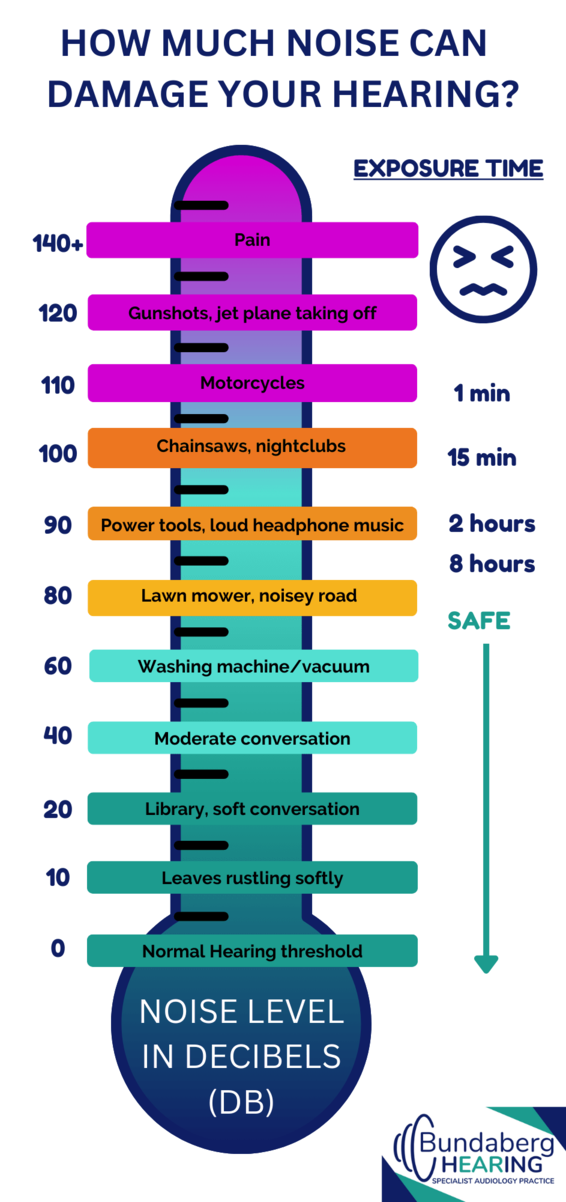Noise protection
Noise protection is an umbrella term that covers alot of solutions to protect against damaging noise exposure.
Apart from the physical ear protection options of earmuffs/earplugs, there are also procedural modifications and workplace modifications that businesses can implement to limit the exposure of their employees to damaging noise.
There are all sorts of earmuffs and earplugs on the market designed to help reduce noise at work and some have a poor/low noise reduction rating (NRR) and some have a good/high NRR, some are class 1 and some are class 5, some offer passive noise reduction and some offer active/electronic reduction, some allow you to hear soft conversation levels for communication and some do not, some are generic fit and some are custom fit, etc. etc. The most noise reduction or attentuation you will get from a well fitted ear protection system (even if its double protection like custom earplugs and earmuffs together) is 35dB. Extreme impulse noises (e.g. explosions) will transfer to the ear through bone vibration regardless of how good your ear protection is at the time.
It is always best to seek advice from an independent Audiologist on appropriate custom earmould solutions and especially one who has a good understanding of custom noise protection and evaluating industrial deafness.
Workplace occupational hearing tests
These hearing tests are generally initiated by your employer on a periodic basis to monitor your hearing over time and help identify any change or deterioration to your hearing. If you work in a noisey environment and your employer isn’t making you have occupational hearing tests done, you can still get your own baseline hearing assessment done independently for future reference.
WorkCover QLD compensation
A hearing assessment for WorkCover will be initiated when industrial deafness from long term noise exposure is detected or if you are suffering acoustic trauma/hearing loss from a single blast/event. You may be eligible for compensation from WorkCover QLD which can help cover the cost of future hearing appointments and hearing aids.
Want to read about other hearing topics?
- Living well with hearing loss
- Hearing Aids
- Tinnitus and Sound Intolerance
- Independent Audiologist
- Bone & Cochlear Implants
- Central Auditory Processing Disorder
- Funding and support


